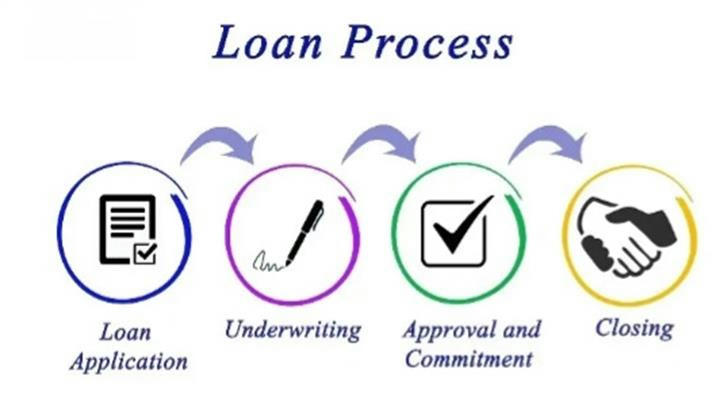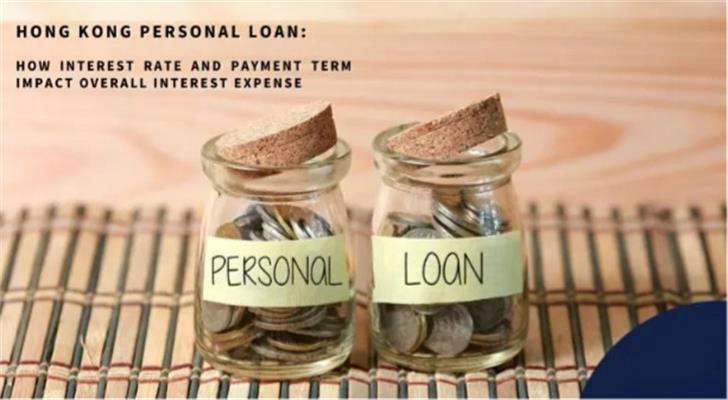Hong Kong Personal Loan Analysis: How to Borrow More Safely and More Intelligently?
In Hong Kong, Personal Loan is a popular financing method that does not require collateral and has a relatively simple application process. However, in the face of numerous loan products on the market, the interest rates, repayment methods, and conditions offered by different banks and financial institutions also vary greatly.

1. What is a Personal Loan? What situations does it apply to?
A Personal Loan is an unsecured loan, which means that the borrower does not need to provide real estate, cars, or other assets as collateral. Banks or financial institutions mainly determine the loan amount and interest rate based on the borrower's credit score, income status, and repayment ability.
Personal Loan Applicable People:
✅ Need funds to cope with emergency expenses, such as medical expenses or home repairs.
✅ Plan for short-term cash flow, such as paying tuition, getting married, or starting a business.
✅ Existing credit card or loan debt is high, and hope to reduce interest rates and repayment pressure through debt consolidation.
✅ Hope to improve credit scores so that they can apply for larger loans in the future, such as mortgages or car loans.
Credit loans are not suitable for long-term large investments because the interest rate is relatively high and long-term holding may increase the financial burden.
2. Main types of credit loans in Hong Kong
Different loan types are suitable for different funding needs. The following are the most common types of credit loans in Hong Kong:
1. Personal installment loan
The borrower obtains a fixed amount of funds at one time and repays it monthly (usually a fixed amount).
Suitable for planned expenses, such as furniture purchases, travel, or education expenses.
Advantages: Interest rates are usually low and repayment plans are clear.
Disadvantages: Early repayment may require additional handling fees.
2. Revolving loan
Similar to a credit card limit, the bank approves a borrowing limit, and the borrower can withdraw money at any time within the limit.
Suitable for situations with uncertain funding needs, such as short-term turnover or temporary expenses.
Advantages: Flexible withdrawals, and the limit is restored after repayment.
Disadvantages: The interest rate is usually higher than that of an installment loan, which can easily lead to long-term debt accumulation.
3. Tax Loan
During the tax season every year, some banks will launch this type of loan specifically for paying personal income tax.
Suitable for individuals who need funds to pay taxes.
Advantages: The interest rate is usually low and the approval is fast.
Disadvantages: Application is limited to a specific time.
4. Debt Consolidation Loan
Suitable for people with multiple credit card or loan debts, who can repay old debts through new loans to reduce interest expenses and simplify the repayment process.
Advantages: Reduce monthly payments and reduce interest burden.
Disadvantages: May extend repayment time and increase long-term costs.

3. Application conditions and approval process for credit loans
(1) Basic application conditions
The requirements of different institutions vary slightly, but generally speaking, applicants must meet the following conditions:
Age requirement: Generally between 18 and 65 years old, some banks may require over 21 years old.
Income requirement: Most banks require a minimum monthly salary of HK$10,000 or more (some private lenders may accept people with lower incomes).
Credit record: Applicants need to have a good credit score (such as using the credit score provided by the Hong Kong Credit Reference Bureau (TransUnion)).
Proof of employment: Usually, you need to provide a pay slip or bank statement for the last 3 to 6 months.
Proof of residence: Some banks may require a utility bill or lease agreement as proof of address.
(2) Loan approval process
Application submission (online/offline): Provide personal information, proof of income, etc.
Review by bank or financial institution (usually 1-3 working days): Assess credit score and repayment ability.
Approval and contract signing: Determine loan amount, interest rate, and repayment method.
Loan disbursement: The loan amount is directly deposited into the applicant's bank account.
4. Interest rate, repayment method, and fees of credit loans
(1) Interest rate calculation method
Hong Kong's credit loan interest rates are usually calculated based on the Actual Annual Percentage Rate (APR), and the interest rates of different institutions vary greatly.
📌 General annual interest rate range: 2% - 40% (depending on personal credit score, loan amount, and term).
Calculation example:
Loan amount: HK$100,000
Annual interest rate: 8%
Loan term: 3 years
Total interest expense: Approximately HK$12,000
Monthly repayment amount: Approximately HK$3,111
(2) Additional fees
Some loans may involve additional fees, including:
Handling fee: Some banks charge 1-2% of the loan amount as administrative fees.
Early repayment penalty: If you repay the loan early within the contract period, you may be required to pay additional fees.
Late payment penalty: If you fail to repay on time, additional penalty interest will be incurred, affecting your credit score.

5. Potential risks and preventive measures of credit loans
📌 1. Overdue repayment affects credit score – Affects future mortgage and credit card applications.
📌 2. Long-term debt problems – If you borrow frequently, you may fall into the dilemma of "borrowing to support loans".
📌 3. High-interest loan trap – Some private lending institutions may charge extremely high interest rates. Be sure to check the contract terms before applying.
📌 4. Fraud risk – Some illegal institutions may attract customers with "low-interest loans" and actually charge high fees.
✅ Preventive measures:
✔ Choose licensed banks or financial institutions to avoid private lending traps.
✔ Calculate your repayment ability to ensure that it will not affect your daily living expenses.
✔ Avoid applying for too many loans to prevent a drop in your credit score.
6. Summary: How to use credit loans wisely?
📌 Before taking out a loan, first assess your actual needs to avoid unnecessary debt.
📌 Compare interest rates and fees of different banks and choose the most suitable plan.
📌 Ensure that monthly repayments are within your budget and avoid overdue payments that affect your credit score.
📌 If you encounter debt problems, communicate with the bank in a timely manner and do not use loans to support loans.
Credit loans are a convenient way to raise funds, but reasonable planning and management are essential. Wise borrowing can protect your personal financial health! 💡
